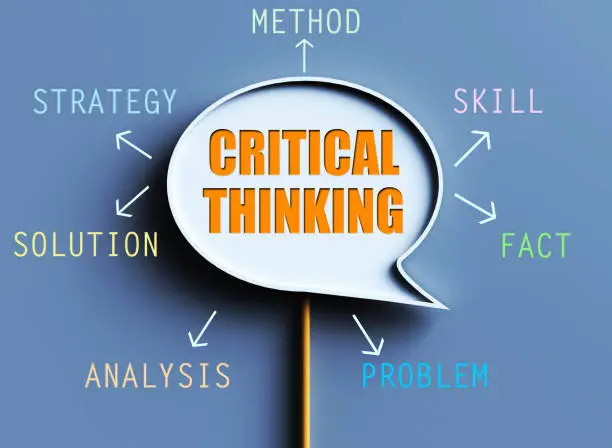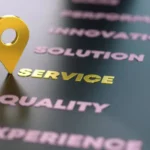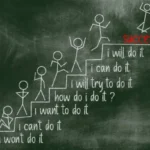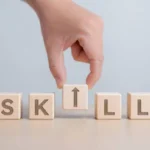Introduction
Have you ever wondered why some people seem to navigate workplace challenges effortlessly while others struggle? The secret sauce often boils down to one vital skill—critical thinking. In today’s fast-paced, ever-changing job market, critical thinking skills are not just a bonus; they are essential. Whether you’re answering customer queries, managing projects, or innovating new products, critical thinking empowers you to analyze situations clearly and make smarter decisions. So, what exactly are these skills, and why should every professional care about them? Let’s dive in.
Understanding Critical Thinking
Critical thinking is more than just “thinking hard.” It’s a systematic approach to analyzing information, evaluating evidence, and making reasoned judgments. Imagine your brain is a detective, always on the lookout for clues and inconsistencies before jumping to conclusions. Unlike regular thinking that might be automatic or based on habit, critical thinking is deliberate and reflective.
Core Components of Critical Thinking
- Analysis: Breaking down complex information into understandable parts.
- Evaluation: Assessing the credibility and relevance of information.
- Inference: Drawing logical conclusions from evidence.
- Explanation: Clearly articulating your reasoning.
- Self-Regulation: Reflecting on your own beliefs and biases.
The Role of Critical Thinking in Problem Solving
Every job involves problems. But not every problem gets solved well. That’s where critical thinking shines. It helps you identify the root cause instead of just treating symptoms. For example, a customer service rep using critical thinking might notice that frequent complaints stem from unclear instructions, not just product defects.
Examples from the Workplace
Think of a software developer troubleshooting a glitch. Instead of randomly trying fixes, they use logic to isolate where the bug lives, test hypotheses, and come up with a permanent solution. Critical thinking turns guessing games into smart strategies.
Critical Thinking and Decision Making
Ever made a decision only to regret it later? That’s often because the decision was rushed or biased. Critical thinking forces you to consider all options, weigh pros and cons, and avoid common cognitive traps like confirmation bias.
When you practice critical thinking, your decisions are grounded in facts and reason—not just gut feelings or peer pressure. This leads to better outcomes for you and your team.
Communication Skills Enhanced by Critical Thinking
Great communication isn’t just about talking; it’s about listening actively, asking the right questions, and clarifying misunderstandings. Critical thinkers excel in this area because they don’t take information at face value. They probe deeper, ensuring messages are clear and meaningful.
Imagine a project manager who listens carefully to each team member’s input, questions assumptions, and synthesizes ideas into a coherent plan. That’s critical thinking in action boosting communication.
Critical Thinking in Teamwork and Collaboration
Teams thrive on diverse ideas, but conflict can arise without thoughtful dialogue. Critical thinking helps team members evaluate differing viewpoints respectfully and find common ground. It’s like having a mental filter that sifts through noise to uncover productive discussion.
When teams apply critical thinking, collaboration improves, and projects move forward smoothly—even amid disagreements.
Adaptability and Critical Thinking
Change is the only constant in today’s workplace. Employees who can think critically adapt faster, whether it’s learning new software or adjusting to shifting company goals. Critical thinking equips you to assess new information quickly and decide how best to respond.
Take a marketing professional facing sudden shifts in consumer behavior. Instead of panicking, they analyze trends, brainstorm creative approaches, and pivot the strategy confidently.
Critical Thinking and Leadership
Great leaders aren’t just born; they’re often great thinkers. Leaders with strong critical thinking skills can anticipate problems, inspire innovation, and make tough calls based on solid reasoning rather than emotion alone.
Think of leaders like Satya Nadella at Microsoft, who transformed the company by encouraging a culture of learning, questioning, and critical thinking.
Critical Thinking Across Different Job Roles
No matter your role, critical thinking plays a key part.
- Customer Service: Resolving complaints effectively by understanding the underlying issue.
- Tech Jobs: Debugging code or designing systems with precision.
- Management: Making strategic decisions and guiding teams.
- Healthcare: Diagnosing patients based on symptoms and data.
Its universal importance means anyone can benefit from honing these skills.
How Employers Value Critical Thinking Skills
According to a LinkedIn survey, critical thinking consistently ranks among the top soft skills employers seek. Companies like Google and IBM emphasize it during hiring because employees who think critically contribute to innovation and efficiency.
In a competitive job market, strong critical thinking skills can be your ticket to landing and excelling in your dream role.
How to Develop Critical Thinking Skills
Want to get better at critical thinking? Here are some proven ways:
- Ask questions: Challenge assumptions in everyday conversations.
- Read widely: Exposure to different viewpoints sharpens your mind.
- Practice problem-solving: Take on puzzles or real work challenges.
- Reflect regularly: After decisions, think about what went well and what didn’t.
- Take courses: Platforms like Coursera and edX offer critical thinking classes.
Common Barriers to Critical Thinking
Even smart people stumble when emotional bias, misinformation, or groupthink cloud their judgment. Recognizing these pitfalls is the first step to overcoming them.
For example, if you notice you’re agreeing with a group just to fit in, pause and consider the evidence independently.
The Impact of Technology on Critical Thinking
Technology is a double-edged sword. Tools like AI and search engines provide vast information, but they can also encourage surface-level thinking and reliance on quick answers. The key is to balance tech use with deep analysis and skepticism.
Critical Thinking and Career Growth
Employees who master critical thinking often move faster up the career ladder. Why? Because they solve problems creatively, communicate clearly, and make smarter decisions—all traits of effective leaders.
Take the example of Indra Nooyi, former CEO of PepsiCo, who credited critical thinking as vital to her success.
Conclusion
Critical thinking isn’t just a nice-to-have skill; it’s a career superpower. It empowers you to solve problems smarter, communicate better, and grow faster in any job. In today’s workplace, where complexity and change are constant, honing your critical thinking skills can set you apart and open doors to new opportunities. So why wait? Start sharpening that mental edge today!
FAQs
1. What are the main components of critical thinking?
Critical thinking involves analysis, evaluation, inference, explanation, and self-regulation—working together to help you reason clearly and fairly.
2. Can critical thinking be learned, or is it innate?
Absolutely, critical thinking can be developed with practice, training, and conscious effort over time.
3. How does critical thinking improve teamwork?
It encourages open-mindedness, respectful evaluation of ideas, and collaborative problem-solving, reducing conflict and enhancing results.
4. Why do employers value critical thinking skills?
Because it leads to better decision-making, innovation, and efficiency, all of which are crucial for business success.
5. What are some practical ways to practice critical thinking daily?
Ask questions, seek diverse perspectives, challenge your assumptions, and reflect on your decisions to continually improve.





